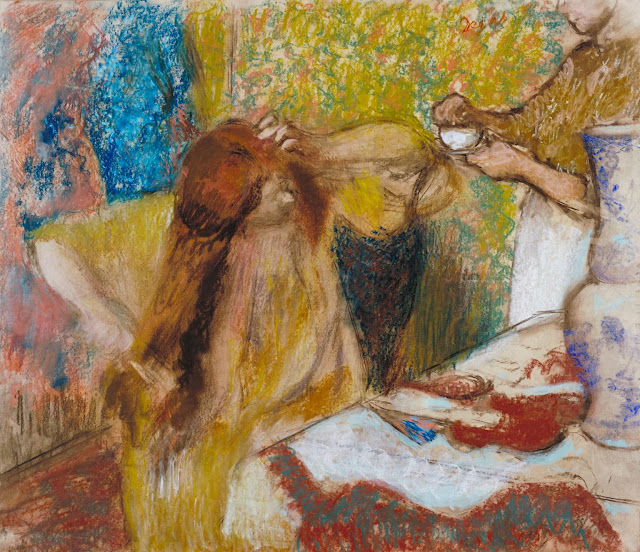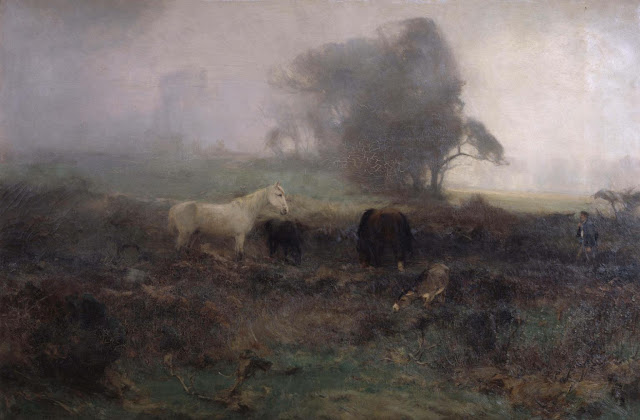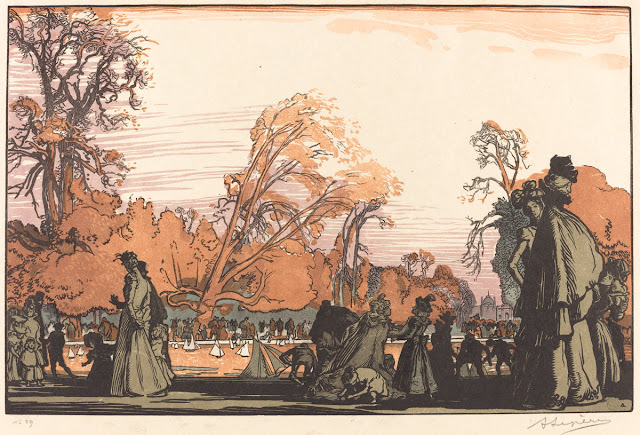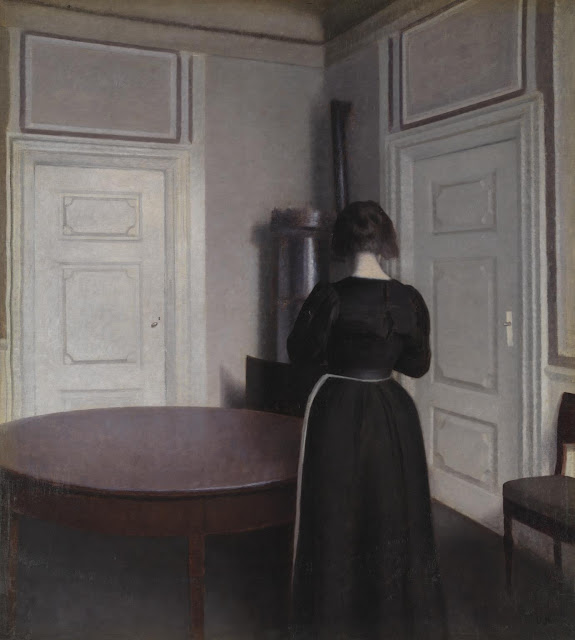 |
| Sydney Starr Study in Blue and Grey 1891 oil on canvas Tate, London |
 |
| William Rothenstein Parting at Morning 1891 chalk, pastel, bronze paint Tate, London |
 |
| William Rothenstein Portrait of Miss Edith Lockyer Williams 1893 oil on canvas Tate, London |
"The physical world seems to be the work of a powerful and good being who has been forced to abandon to a wicked being the execution of part of his plan. But the moral world seems to be the product of a devil who has lost his mind."
 |
| Isaac Israels Shop Window 1894 oil on canvas Rijksmuseum, Amsterdam |
 |
| George Hendrik Breitner Girl in White Kimono 1894 oil on canvas Rijksmuseum, Amsterdam |
 |
| Henri de Toulouse-Lautrec The Two Friends 1894 oil on panel Tate, London |
 |
| Walter Sickert Portrait of Aubrey Beardsley 1894 tempera on canvas Tate, London |
"The world and society are like a library in which at first sight everything appears to be in order because the books are arranged according to the format and size of the volumes, but in which everything turns out to be in disorder because nothing is arranged according to its field of knowledge, its subject, or its author."
 |
| Edgar Degas Woman at her Toilet ca. 1894 pastel Tate, London |
 |
| William Rothenstein Two Women ca. 1895 oil on canvas Tate, London |
 |
| Aubrey Beardsley Messalina and her Companion 1895 ink drawing, watercolor Tate, London |
 |
| Paul Maitland The Flower Walk, Kensington Gardens ca. 1897 oil on panel Tate, London |
"Physical disasters and the calamities of human nature have rendered society necessary. To the miseries of nature, society has added its own. The difficulties of society have evolved the necessity for government, and government has added to the miseries of society. This is the history of human nature."
 |
| David Farquharson In a Fog 1897 oil on canvas Tate, London |
 |
| Auguste Lepère Pond in the Tuileries 1898 chiaroscuro woodcut National Gallery of Art, Washington DC |
 |
| Vilhelm Hammershøi Interior 1899 oil on canvas Tate, London |
"I study only what I like; I occupy my mind only with the ideas that interest me. They may or may not prove useful, either to me or to others. Time either will or it will not bring about the circumstances that will lead me to a profitable employment of my acquisitions. In any case I will have had the inestimable advantage of not having been at odds with myself, and of having obeyed the promptings of my own mind and character."
– maxims are quoted from Products of the Perfected Civilization: selected writings of Chamfort, edited and translated by W.S. Merwin (New York: Macmillan, 1969)